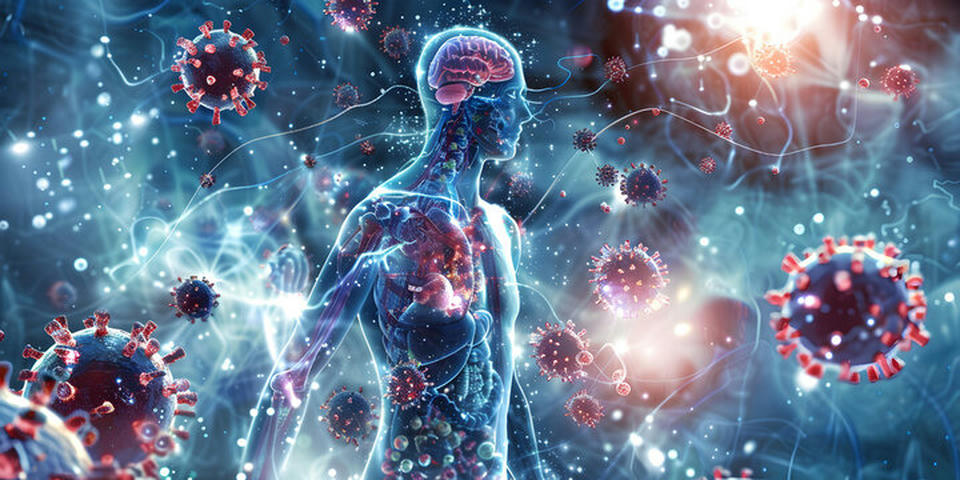Is it really necessary for cancer patients to receive cell immunotherapy?
As a major threat to global health, cancer still has a very high incidence and mortality rate despite breakthroughs in treatment methods in recent years. According to the World Health Organization, there are nearly 10 million cancer-related deaths worldwide each year. Traditional treatments, such as surgery, chemotherapy, and radiotherapy, although effective in the early stages of some cancers, are relatively weak in controlling advanced cancers and metastatic tumors. Especially in the case of cancer recurrence or tumor metastasis, traditional treatments often appear powerless.

Against this background, the rise of cell immunotherapy has brought new hope to cancer treatment. The uniqueness of immunotherapy is that it does not achieve the therapeutic purpose by directly destroying cancer cells, but by activating the patient's immune system to effectively identify and attack cancer cells. This method is regarded as the fourth major treatment method after surgery, chemotherapy, and radiotherapy. This article will focus on the question of whether cancer patients need to receive cell immunotherapy, and conduct an in-depth discussion from multiple dimensions, including its indications, efficacy, cycle, and cost.
Comparison of the three major conventional therapies and cell immunotherapy
The three major traditional treatment methods (surgery, chemotherapy, and radiotherapy) each have their own characteristics and limitations. Surgery is a physical means of directly removing tumors. It is effective when the tumor is well localized, but it has limited efficacy for metastatic tumors or difficult-to-remove tumors (such as brain tumors and pancreatic cancer). Chemotherapy inhibits and kills rapidly dividing cancer cells through systemic drug treatment, but it also affects normal cells in the body, especially bone marrow hematopoietic cells and gastrointestinal mucosal cells, leading to severe suppression of immune function.
Radiotherapy eliminates local cancer cells through directional high-energy radiation, but its radiation lethality is not completely selective, so there is also some damage to surrounding normal tissues. In contrast, cell immunotherapy fights cancer by "strengthening" the patient's own immune system. This therapy originated from a deep understanding of the immune system, that is, the immune system can not only resist the invasion of external pathogens, but also maintain the normal environment in the body by identifying abnormal somatic cells (such as cancer cells). However, cancer cells have a strong "camouflage" ability and can escape the surveillance of the immune system by changing their own surface antigens or inhibiting immune signaling pathways.
The inevitability of the birth of immunotherapy
The concept of immunotherapy is not a recent one. As early as the beginning of the 20th century, scientists had recognized the potential of the immune system in cancer defense. However, due to the limited understanding of the immune system at that time, early attempts did not achieve significant results. It was not until recent years that with the breakthroughs in immunology research, especially the in-depth understanding of immunosuppressive mechanisms such as T cells and PD-1/PD-L1 pathways, immunotherapy has truly entered the clinical application stage.
At present, immunotherapy has become one of the most cutting-edge research directions in the field of cancer treatment. CAR-T cell therapy and immune checkpoint inhibitors (such as PD-1 inhibitors) have shown great potential in the treatment of blood tumors and certain solid tumors, bringing new hope to many patients with advanced and recurrent cancer. This therapy not only directly enhances the attack ability of the patient's immune system, but also maintains immune memory for a long time, thereby providing a lasting anti-cancer effect.
Patient groups suitable for cellular immunotherapy
The scope of application of cellular immunotherapy is gradually expanding with the deepening of research, but not all cancer patients are suitable for this type of treatment. Its applicable patient groups can be roughly divided into the following categories:
Patients with hematological tumors
Patients with advanced solid tumors.
Patients with recurrent or refractory cancer
However, cellular immunotherapy is not effective for all patients. For some patients with severely impaired immune function, such as patients who have been receiving immunosuppressive therapy for a long time or cancer patients with serious comorbidities, cell immunotherapy may not achieve the desired effect. In addition, cell immunotherapy is less effective for some tumor types due to the lack of effective immune targets or the presence of strong immunosuppressive factors in the tumor microenvironment.
Successful cases of cell immunotherapy
The most classic case is Emily, the world's first leukemia child cured by CAR-T cell immunotherapy, who has been cancer-free for 12 years as of 2024. Emily was diagnosed with acute lymphoblastic leukemia (ALL) at the age of 5. After treatment with CAR-T cell immunotherapy, she is now a college student at the University of Pennsylvania and a healthy person.
Overall, cell immunotherapy has shown great potential in cancer treatment and is expected to become one of the core means of cancer treatment in the future. For cancer patients and their families, cell immunotherapy provides a new option, giving them more hope and possibilities when facing cancer.
